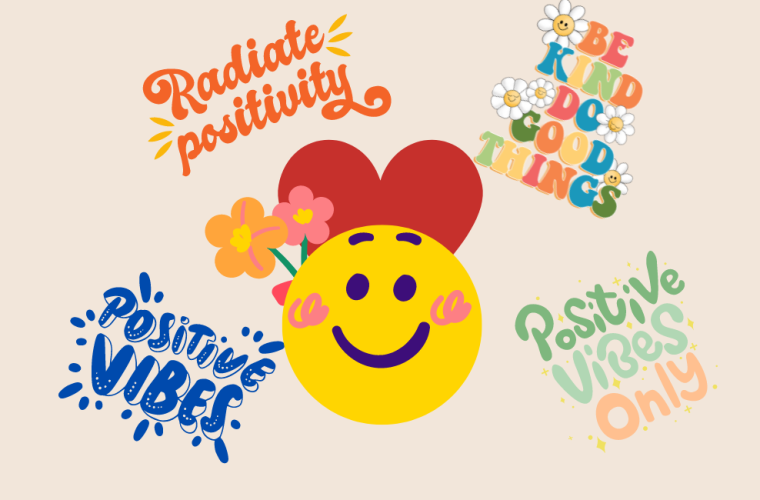Multicultural Counselling Psychologist aiding mental health journeys worldwide. Passionate about holistic care, LGBTQI support, schema therapy, and life transitions. Digital practice from anywhere in the world.
Last Updated on November 27, 2023 by It’s Complicated
While taking care of yourself is integral, it’s impossible to hide from the world’s current events.
While some are caught in the middle of state conflict, political unease, or effects of dwindling global resources, others are left with aching hearts hearing about events unfolding in another part of the world. While some are hearing the gut wrenching sound of explosions or gunfire, others have their social media and news sites flooded with everything from graphic images of armed conflicts to depressing statistics regarding climate change.
Either way, we’re living in unprecedented times in which it is hard to not feel anxiety or sadness merely because of the state of the world. How are we supposed to go about our day as if nothing is wrong? How are we supposed to walk the line between choosing our peace and being informed and active citizens?
Below are 7 tips from a counselling psychologist to balance the effect of news on your mental health.
1. Take Action
The feeling of impotence we may experience when reading about global events leaves us feeling distressed or of little use. Taking action, no matter how small, can help us feel like we are a part of the change that we wish to see in this world to use the phrasing of Mahatma Gandhi. If you’re able to, donating money to a cause related to who you would like to help, or making lifestyle changes to contribute to positive change can make you feel like a part of the solution and not the problem. Having understanding, calm, and productive conversations with others to make them aware of issues that are affecting you and possibly garner their support can be one of the easiest ways to take action. What is important to keep in mind here is that imperfect activism is still valid, and to not shame others for their decisions without knowing the whole story.
2. Avoid News First Thing in the Morning
Many of us have the habit of grabbing our phone first thing in the morning and spending a bit of time on social media or news websites before gathering the energy to get out of bed. Finding a different way to start our day could be vital to our mental health. Researchers at the University of Pennsylvania have found that just three minutes of exposure to negative news first thing in the morning correlated with participants having a 30% higher likelihood of saying they had a bad day six to eight hours later than those who were shown neutral or no news. This study shows how this small but crucial window of time as we’re waking up can have enormous effects on our mental health throughout the rest of the day. Mindful consumption of news can indeed mitigate the detrimental impact of news on mental health, fostering a sense of well-being and resilience in the face of distressing headlines.
3. Read Something Positive
A journalist’s objective is to engage you with a story; they seek clicks, viewers on TV or the radio, and ultimately, they are mindful of their following and, consequently, their livelihood. Can you blame them? Sadly, the shock value of negative news forces them to focus on negative aspects of situations, exaggerate, pick and choose what to tell, and sometimes post fake news. All of this keeps us clicking, worrying, and captive to their words. This model often overlooks the possibility of good things happening in this world and mental health effects of not seeing these things. Therefore, to counteract this negativity, positive news sites have appeared including The Good News Network. Understanding media literacy is crucial when discussing the impact of news on mental health, as it empowers individuals to critically evaluate the information they consume. So take some time to remind yourself that news sites do not usually paint the full picture; looking over good things happening in this world can bring relief.
4. Realise You’re Not Alone
Many times the sadness about the state of the world can be isolating because in interactions with other people we do not want to be deemed a negative person or bring down the energy during a group event. Often, we get together with people to forget about the state of the world with time away from screens, so we’re reluctant to bring these topics up. A way of getting around this is finding a mental health professional with whom you feel that you can be completely honest, feel understood, heard, and validated. The term eco-anxiety or climate anxiety (regarding climate change) has recently become something therapists are focusing on. It supports the reality of these types of fears being common, and that people are finding relief and working through these worries in therapy.
5. Lifestyle Adjustments and Self Care
The actions we take every day to maintain our mental health or not are crucial for our levels of anxiety and depression. It’s important to realize making space to prioritize yourself despite everything is important. Exercise has been proven time and time again through research to be beneficial for our mental health through the endorphins we release while working out and the improvements in sleep quality the following night. Mindfulness meditation is also one of the most effective ways to find peace when negative thoughts make us anxious, and the ready availability of meditations on YouTube can be amazing resources. Whatever your self care activity of choice is, from spending time in nature to cuddling a pet, don’t skip out on it! It is extremely important that you regulate yourself during these turbulent times because your inability to find peace right now will not help others be able to do so.
6. Reframing Guilt to Gratitude
One of the biggest feelings that can come up for us in times like these is a feeling of intense guilt. This can come about because often our day to day lives might not be affected by hardships going on in other parts of the world or even a few blocks from our homes. These feelings can eat us up inside and be detrimental for our mental health. Instead of looking at these situations from a place of guilt, which serves neither you nor victims, consider reframing these feelings towards looking at them from a place of gratitude that you are not in fact dealing with this or that things are not different. The mental health benefits of gratitude have been known for years. Identifying the extra points of gratitude related to current events, such as feeling grateful for a home and political stability, can help us look at these issues from a healthier perspective. Keeping a gratitude journal and writing in it every day has been shown time and time again to be an excellent tool to remind us to look at things from a place of gratitude and not guilt.
7. Limit Exposure Time
It is far too easy to get caught up in “doom scrolling” or spending an excessive amount of time reading bad news online due to the exhilarating and emotionally captivating nature of the subject. We often find ourselves consuming more information than necessary to keep ourselves informed with what’s going on, which can make our mental health take a downturn. Contemplating a limited amount of time which works for you to consume this information each day and even setting time limits within apps on your phone can be an excellent tool to look out for your mental health and be more present. It is crucial to strike a balance between reading the news and limiting social media time to safeguard your mental health in an increasingly connected world.
Research in the field of evolutionary psychology tells us that humans were not designed to absorb the volume of bad news and negativity that we are now habitually exposed to through the internet. We evolved from a hunter-gatherer society, and though our brains are incredibly advanced, we just aren’t ready to be aware and empathetically connect with the hardship going on all over the world. It’s therefore important to take a step back and realize that it’s alright for these things to affect us. Our sensitivity towards other people’s situations and worries about the future are in fact what make us human, not weak.
Advantages of Discovering Your Therapist via It’s Complicated
- No Setup Costs: Creating an account and reaching out to therapists is entirely cost-free.
- Transparent Pricing: You’ll only pay the session fee, with no concealed booking fees.
- Precise Search: Utilize our robust search tool to pinpoint therapists based on your specific preferences.
- Thorough Listings: Easily explore therapists categorized by their specialty, approach, location, and language.
Built for therapists, by therapists, It’s Complicated is the only international counselling platform that doesn’t just help people find the right therapist, but also supports the therapists in their craft of helping others. With GDPR-compliant video software, encrypted messaging, and easy invoicing, It’s Complicated is the only tool you need to do therapy. If you are in a crisis use instead one of these resources.





